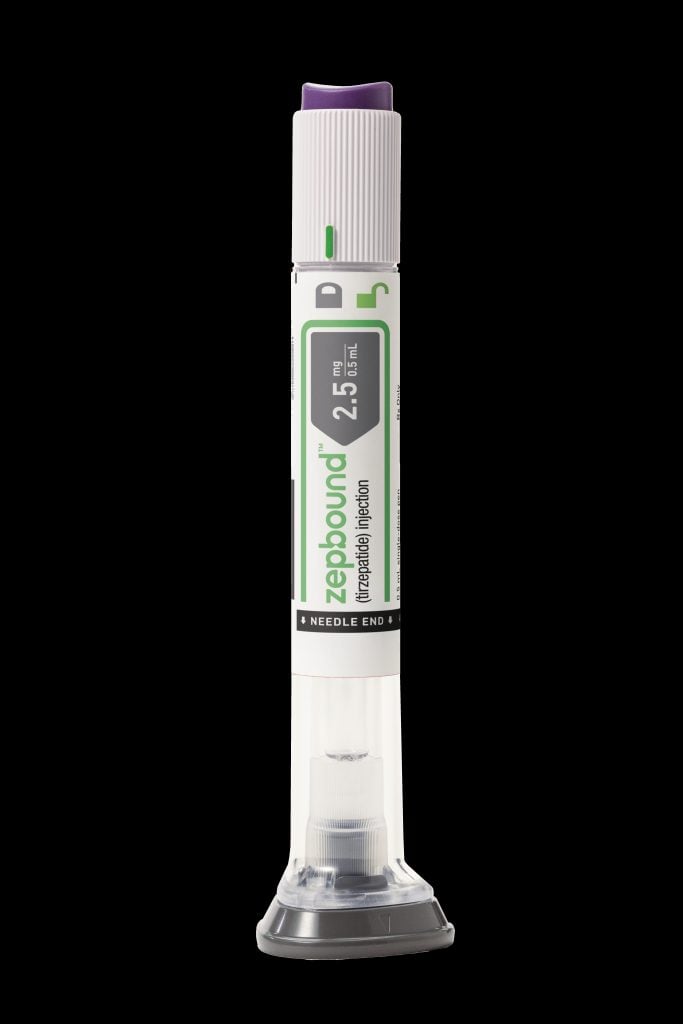On November 8, the U.S. Food and Drug Administration (FDA) approved Eli Lilly and Company’s (NYSE: LLY) Zepbound™ (tirzepatide) injection, the first and only obesity treatment of its kind that activates both GIP (glucose-dependent insulinotropic polypeptide) and GLP-1 (glucagon-like peptide-1) hormone receptors. Zepbound is indicated for adults with obesity (with a BMI of 30 kg/m2 or greater), or those who are overweight (with a BMI of 27 kg/m2 or greater) and also have weight-related medical problems such as hypertension, dyslipidemia, type 2 diabetes mellitus, obstructive sleep apnea or cardiovascular disease, to lose weight and keep it off. It should be used with a reduced-calorie diet and increased physical activity. Zepbound should not be used with other tirzepatide-containing products or any GLP-1 receptor agonist medicines, and it has not been studied in patients with a history of pancreatitis, or with severe gastrointestinal disease, including severe gastroparesis.
The approval was based on results from the phase 3 SURMOUNT-1 and SURMOUNT-2 trials. In SURMOUNT-1, a study in 2,539 adults with obesity, or excess weight and weight-related medical problems not including diabetes, people taking Zepbound as an adjunct to diet and exercise experienced substantial weight loss compared with placebo at 72 weeks. At the highest dose (15 mg), people taking Zepbound lost on average 48 lb., while at the lowest dose (5 mg), people lost on average 34 lb. (compared to 7 lb. on placebo).
Additionally, one in three patients taking Zepbound at the highest dose lost over 58 lb. (25% of body weight), compared to 1.5% on placebo, according to data not controlled for type 1 error. The average starting weight was 231 lb.
While not approved to treat these conditions, in a clinical trial, people who dieted, exercised and took Zepbound for the treatment of obesity or overweight with weight-related medical problems observed changes in cholesterol and reductions in blood pressure and waist size.

“Unfortunately, despite scientific evidence to the contrary, obesity is often seen as a lifestyle choice – something that people should manage themselves,” said Endocrine Society member Leonard Glass, MD, senior vice president global medical affairs, Lilly Diabetes and Obesity. “For decades, diet and exercise have been a go-to, but it’s not uncommon for a person to have tried 20 – 30 times to lose weight with this approach. Research now shows that the body may respond to a calorie-deficit diet by increasing hunger and reducing feelings of fullness, making weight loss more difficult. Lilly is aiming to eliminate misperceptions about this disease and transform how it can be managed.”
Zepbound use may be associated with gastrointestinal adverse reactions, sometimes severe. The most commonly reported adverse events (observed in ≥ 5% of clinical trial participants) were nausea, diarrhea, vomiting, constipation, abdominal pain, dyspepsia, injection-site reactions, fatigue, hypersensitivity reactions, eructation, hair loss and gastroesophageal reflux disease. In studies, most nausea, diarrhea, and vomiting occurred when people increased their dose – but the effects generally decreased over time.
In studies, gastrointestinal side effects were more common in people taking Zepbound than people taking placebo, and people taking Zepbound were more likely than those on placebo to stop treatment because of these side effects. The label for Zepbound includes a Boxed Warning regarding thyroid C-cell tumors. Zepbound is contraindicated in patients with a personal or family history of medullary thyroid carcinoma, in patients with Multiple Endocrine Neoplasia syndrome type 2, and in patients with known serious hypersensitivity to tirzepatide or any of the excipients in Zepbound. See Important Safety Information below and full Prescribing Information and Medication Guide.
“Far too many hurdles continue to prevent people living with obesity from accessing obesity treatments that could lead to significant weight loss,” said Mike Mason, executive vice president and president, Lilly Diabetes and Obesity. “Broader access to these medicines is critical, which is why Lilly is committed to working with healthcare, government and industry partners to ensure people who may benefit from Zepbound can access it.”
“For decades, diet and exercise have been a go-to, but it’s not uncommon for a person to have tried 20 – 30 times to lose weight with this approach. Research now shows that the body may respond to a calorie-deficit diet by increasing hunger and reducing feelings of fullness, making weight loss more difficult. Lilly is aiming to eliminate misperceptions about this disease and transform how it can be managed.”
Leonard Glass, MD, senior vice president global medical affairs, Lilly Diabetes and Obesity
Zepbound is expected to be available in the U.S. by the end of the year in six doses (2.5 mg, 5 mg, 7.5 mg, 10 mg, 12.5 mg, 15 mg) at a list price of $1,059.87, which is approximately 20% lower than semaglutide 2.4 mg injection for weight loss. List price does not reflect the typical out-of-pocket cost to patients given insurance coverage and discounts. Lilly is putting a commercial savings card program in place that will help people who may benefit from Zepbound better access it.
- People who are commercially insured with coverage for Zepbound may be eligible to pay as low as $25 for a one-month or three-month prescription.
- People who are commercially insured without coverage for Zepbound may be eligible to pay as low as $550 for a one-month prescription of Zepbound, approximately 50% lower than the list price.
People may begin using the savings card program in the days following product availability at U.S. pharmacies. To learn more about these programs, or to sign up to receive the latest news, please visit www.Zepbound.lilly.com. Terms and conditions apply.
Tirzepatide is also under regulatory review for weight management in Europe, China, the United Kingdom and several additional markets.

